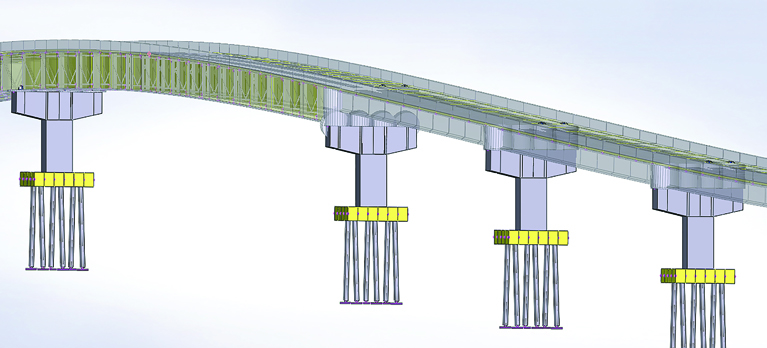Fugro was appointed by Arab Contractors to carry out the investigation work, which will feed into the design and construction of the new bridge.
Aswan is famous for its granite, which the pharaohs used to build obelisks, sculptures and temples. Fugro said that these hard Gabbro and Granite formations can impede the drilling and sampling activities required for accurate site characterisation. The company said that it was able to drill boreholes in the hard granite rock and acquire the necessary samples by deploying a range of wireline techniques and using state-of-the-art drilling equipment.
The samples were then analysed in Fugro’s IAS-accredited in-country soils laboratory to provide the parameters and characteristics needed for the bridge design.
“This project was located in Aswan city, an area with extremely hard ground conditions that often create technical challenges,” said Mohamed Mostafa, business line director for land site characterisation at Fugro. “Fugro’s drilling experience and capabilities in hard rock layers surmounted these challenges and led to a successful delivery of the site investigation.”
The eventual Aswan Dam bridge will have eight traffic lanes and is intended to carry some of the heavy road traffic currently routed over the current Aswan Low Dam bridge, which was built in 1902.



